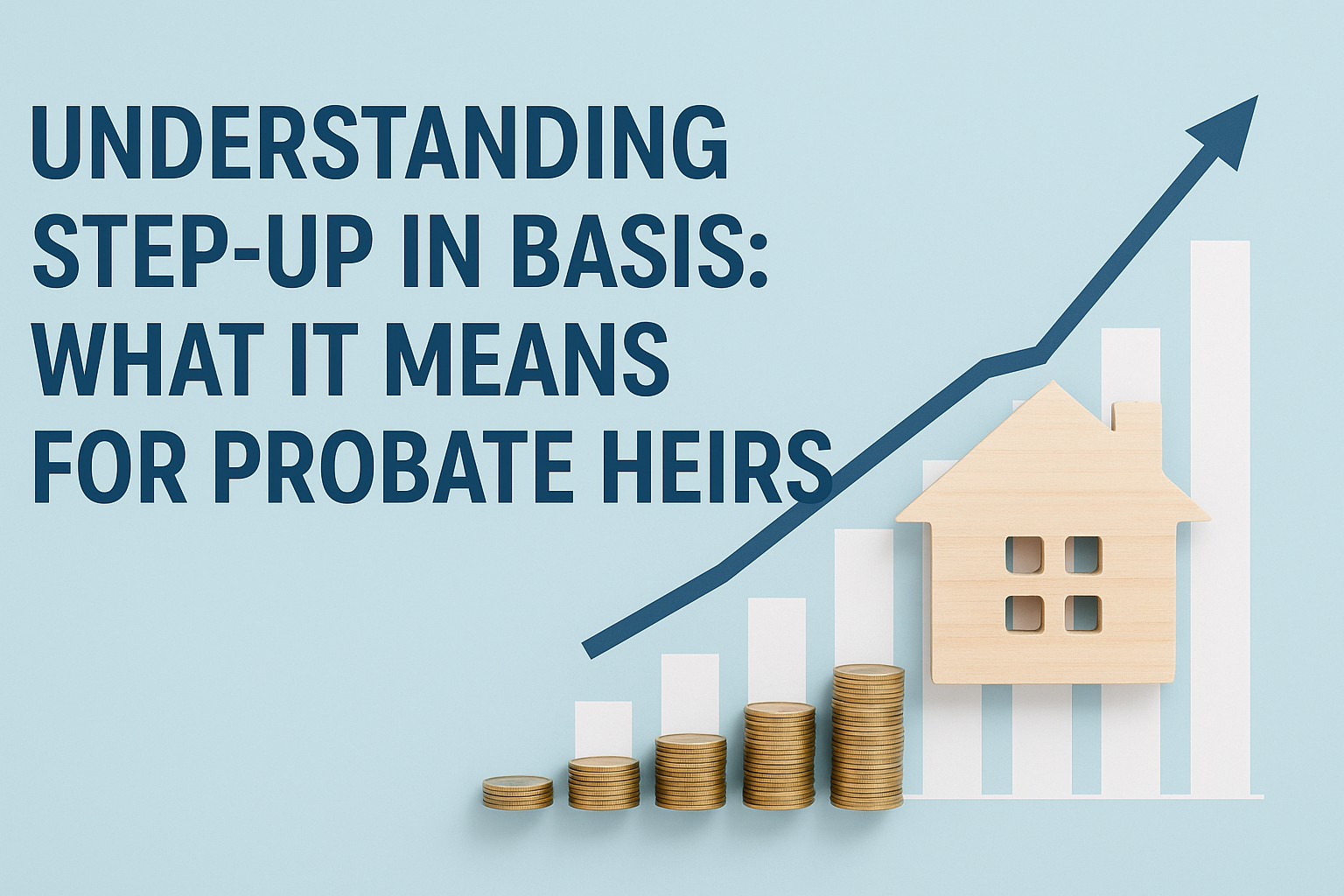If you’ve recently inherited a home or piece of real estate through probate, you may have heard the term “step-up in basis” tossed around by attorneys, accountants, or real estate professionals. And if it left you scratching your head—you’re not alone. This is one of the most important financial concepts for heirs to understand, especially when deciding whether to keep or sell an inherited property. The good news? It’s a concept that often works in your favor.
Let’s break it down in plain English. When someone buys a property, the amount they paid for it is called the “basis.” That number is used to calculate capital gains taxes if they later sell the property for more than they bought it for. For example, if your grandmother bought her house for $50,000 and sold it for $300,000, she would have capital gains of $250,000—and she’d owe taxes on that profit, minus any exclusions or deductions.
But when someone passes away and leaves property to an heir, the tax rules change. Instead of using what the deceased originally paid for the home, the IRS allows the “basis” to be “stepped up” to the market value at the time of death. This means that if your grandmother’s home was worth $300,000 when she passed away, and you inherit it, your new basis is $300,000—not the $50,000 she originally paid.
Why does this matter?
Because if you sell the property for $305,000 shortly after inheriting it, you only have a capital gain of $5,000—not $255,000. That’s a huge difference when it comes to taxes.
This step-up in basis can significantly reduce, or even eliminate, the capital gains tax you owe after selling an inherited property—especially if you sell it relatively soon after the date of death. The longer you hold the property, the more likely its value will increase beyond the stepped-up basis, which could result in taxable gains down the road. But if you sell quickly, the stepped-up value usually reflects the current market, making your gain minimal and your taxes lower.
Here’s an example to make it even clearer.
Let’s say your father bought a home in the 1980s for $75,000. It’s now worth $400,000. He passes away, and the home goes to you through probate. Because of the step-up in basis, your new tax basis is $400,000. If you sell the home for $410,000, you only owe capital gains tax on the $10,000 gain—not on the $335,000 difference from the original purchase price.
There are a few important things to remember. First, the step-up applies to the fair market value as of the date of death, not the date you take possession. Second, this rule generally applies to inherited property, not gifted property during someone’s lifetime. If your loved one gifted you the home before passing away, you may not get the step-up, and the tax picture could look very different. And third, this applies to federal taxes—state tax laws can vary, so it’s wise to speak with a probate-savvy tax professional.
It’s also worth noting that if multiple heirs inherit the property together, they each receive their portion of the stepped-up basis, and any sale proceeds (and taxes) are typically divided accordingly. That’s another reason it’s essential to work with professionals who understand how to calculate and document everything correctly.
In the middle of probate, it’s easy to get lost in the paperwork, emotions, and to-do lists. But understanding how the step-up in basis works can help you make smarter decisions—whether that’s choosing to sell, rent, or hold onto the property for the long term. It’s not just a tax rule; it’s a potential financial benefit at a time when many families are juggling stress, grief, and uncertainty.
If you’re navigating a probate property and aren’t sure what your options are or what your next steps should be, I’m here to help. From evaluating your property’s market value to connecting you with the right legal and tax professionals, I can guide you through the process with clarity and compassion.

